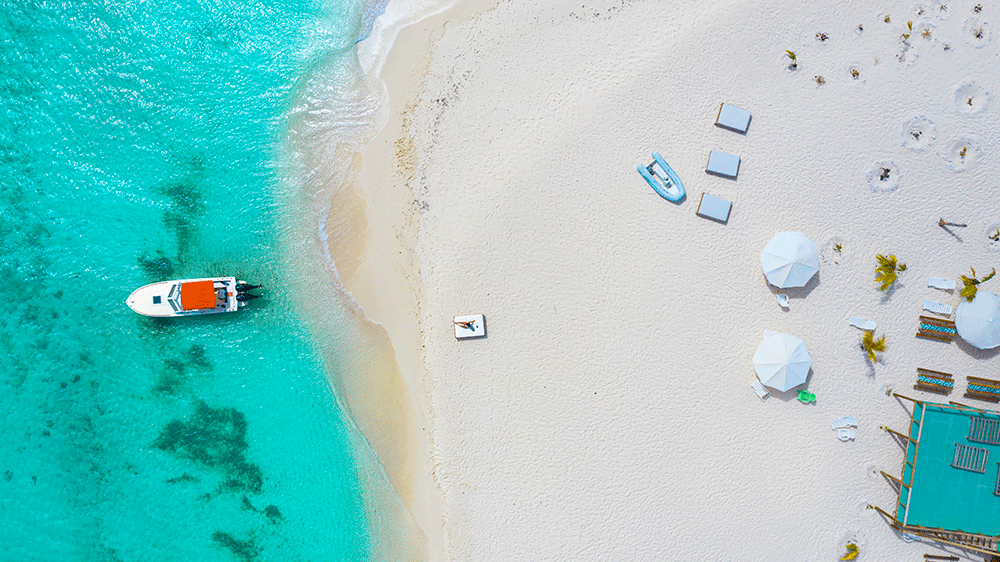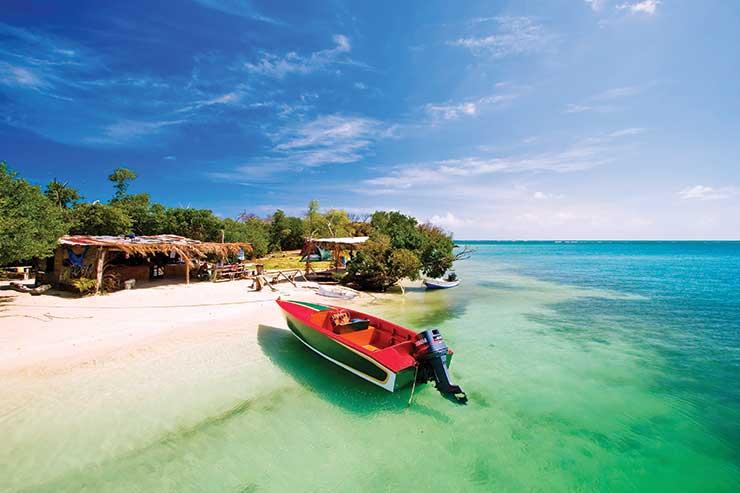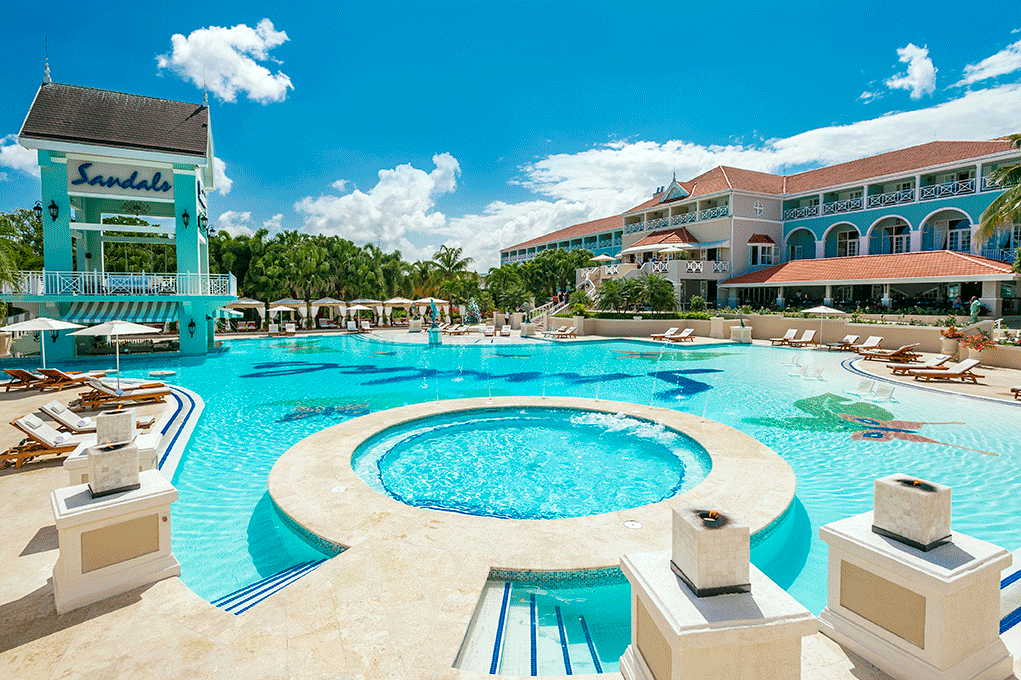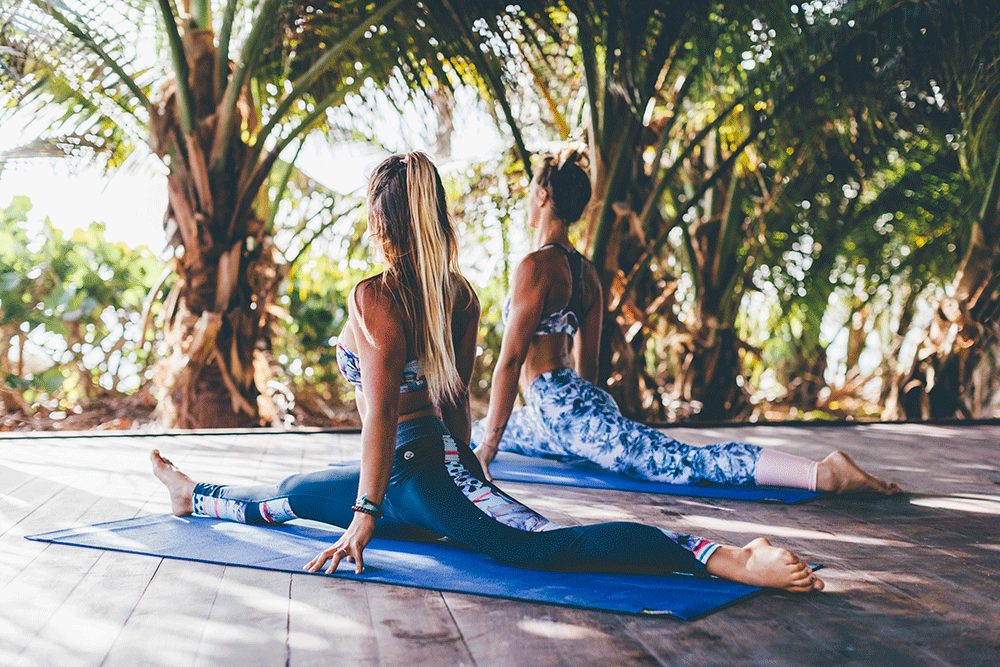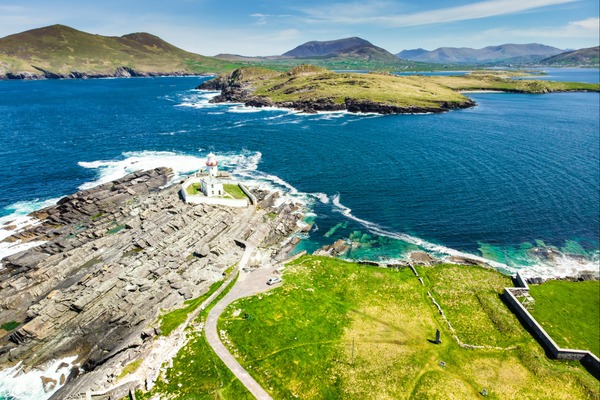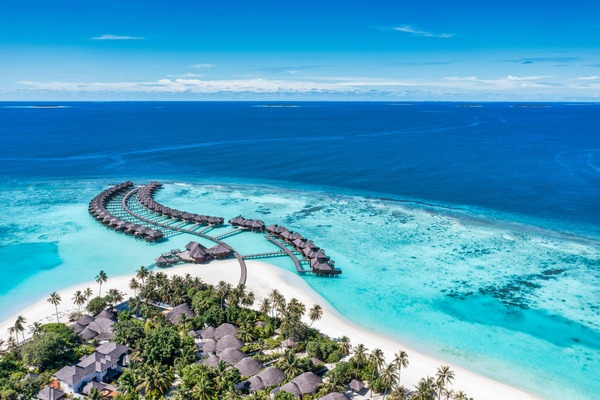Caribbean pins hopes on resilient past for future recovery
 April Hutchinson
April HutchinsonHaving faced a number of crises over the years, those in tourism across the Caribbean are hoping a long experience in resilience could help the region see out the coronavirus devastation.
“The world will need the Caribbean to help heal. This will be a place to come and regenerate.”
So says Frank Comito, chief executive and director general of the Caribbean Hotel & Tourism Association (CHTA), talking to TTG about the challenges facing the region during the coronavirus pandemic.
He’s not alone in thinking the region’s beaches, nature and way of life will be appreciated by many looking to recuperate after the shock of global lockdown.
Carol Hay, chief executive of McKenzie Gayle – which represents the Caribbean Tourism Organisation’s (CTO) UK Chapter – agrees the islands’ appeal will be strong for those looking to travel once the lockdown is lifted.
“Tourism generally will play a big role in the recovery of people – the next holiday anyone takes is going to be such an important one,” Hay said. “So, we will be saying ‘come to the Caribbean, get fit, boost your immune system, be healthy, hike, explore, eat great fresh local fruits and vegetables’ – that will be more important than ever.”
But Comito also urged everyone not to be complacent about the effort that will be required to keep the region front of mind and ready to deal with the bounceback – and the importance of stimulating it.
“Yes, we are resilient and always have been, and we have even better product now than ever, more hotel rooms and even better infrastructure, after so much rebuilding post hurricanes,” he said. “But tourism is so pervasive in our region – six of the 10 countries globally that have the highest percentage of employees in tourism are in the Caribbean, so we will have to get it back as soon as possible.
“When we come out of this, it will be rapid and we will see a spike of movement, and there will be a lot of competition going after that, so everyone needs to be ready,” he added. “We need a dual mindset, one of dealing with what’s happening right now, and one for the future. The approach has to be collaborative and pervasive, with private and public sector working together.”
Economic threat
Like any nation, the countries of the Caribbean will urgently need to recoup tax dollars from their own people and from sectors such as tourism in order to cover potential debts accrued for lending during the crisis, as well as probably having to attract inward investment, Comito said.
He said however that the region had been quick to act as the virus started spreading worldwide.
Public health coordination and information across the region was galvanised via the Caribbean Public Health Agency (CARPHA), and the CHTA – which represents around 1,000 hotel and allied members, and 33 national hotel associations – along with CARPHA, the CTO, and the Global Tourism Resilience & Crisis Management Centre, formed the Covid-19 Caribbean Tourism Task Force “early on”.
“From a few months back, we had been building online resources for people and offering webinars to get people into readiness mode,” said Comito.
Considering the risk to the islands from potentially thousands of cruise passengers coming ashore each day for example, the Caribbean has mercifully to date not been as struck as some countries with cases, perhaps due to such preparedness, monitoring and early communications.
Towards the end of March, swift and severe lockdowns and curfews were put into place by many governments and ports and airports closed as the smattering of cases became known and the wider world shut down anyway.
Cayman Islands is one destination hailed as an early actor in identifying the threat and shutting down – such action was always going to be painful, but the government provided stipends to struggling citizens, mortgage breaks were implemented and fuel reductions put in place.
Of course like many in the world, the next scare beyond health of the population and addressing medical resource is the economic impact across the islands, with WTTC figures estimating 700,000 jobs could be at risk in the Caribbean as a result of the coronavirus-driven shutdown.
Helping hand
Jamaica was also fairly swift to act to instigate supportive measures, with its Covid Allocation of Resources for Employees programme.
That included the Business Employee and Transfer of Cash system, which it was hoped could provide temporary cash transfers to businesses operating in the hotel, tours and attractions sector that were registered with the Jamaica Tourist Board.
Some who lost jobs could perhaps also have tried to access another stream, cash from Supporting Employees with Transfer; like many places around the world, these schemes were initially set for three months.
“The workers of the industry are very heartened by the action of the government,” Minister of Tourism, Edmund Bartlett initially said about the stimulus package. “We are in the process of working out the details of it, but the feeling is one of hope.”
Across the Caribbean, each national government has been seeking to cushion citizens in their own way.
“Some have unique resilience, or recovery, funds in place, some run robust national insurance schemes and have unemployment schemes that can help – some don’t, it varies across the jurisdictions,” said Comito.
In Antigua and Barbuda, where a third of the population relies on tourism and support services, measures include the government “exploring various lines of credit in order to kickstart the whole economy”, especially important in a country without an unemployment benefit scheme, and a promise of “provisions made for those in need throughout society”.
Thousands of hospitality staff were potentially subject to lay-offs, so the Antigua and Barbuda Hotels and Tourism Association negotiated with the Antigua Workers Union as early as possible to allow access to its “thrift fund” during hotel closures.
The government of Anguilla meanwhile had been preparing for the arrival of Covid-19 since late January, including a bespoke website, which also allows for locals to input employment status to give the government an idea of the impact of the virus on the labour force. The government also said it was building an economic stimulus package to support those suddenly out of work.
Carolyn Brown, UK director of tourism for Anguilla Tourist Board, said: “The majority of Anguillans work in tourism and the island was really quick to respond – there are a lot of lessons learnt from previous crisis management situations. Communication is strong, healthcare is well set up and I know we have a lot of support externally if we need it.”
Local impact
The effects of the global pandemic have also been felt locally in Barbados, “especially the critical tourism sector which has seen temporary closure and labour furloughs due to the significant reduction in commercial airlift capacity and forward bookings,” said Robert Chase, acting chief executive of Barbados Tourism Marketing Inc.
He added the government had “immediately responded with a stimulus package to provide critical assistance to both businesses and individuals in light of the expected effects of Covid-19”.
These include the recapitalisation of the Small Hotel Investment Fund with $20 million to allow small hotels to borrow and blend with other commercial funds so they can refurbish their property during a period of closure, with reduced interest rates. The wider Household Survival Program was brought in to offer up a minimum income for households made unemployed.
Grenada steps in
Grenada’s government was one of the quickest to announce a range of measures to promote business sustainability, including EC$20 million (around £6 million) worth of payroll support for hoteliers, restaurants, bars and small travel agents.
Small hotels can benefit from an additional EC$7 million fund made available through the Grenada Development Bank, while income support would also be directed to help local bus and taxi drivers and tourist vendors to “cushion the effects of Covid-19”.
During’s Grenada’s lockdown, health minister Nickolas Steele played out the war rhetoric many of us have now become used to in order to try to keep citizens in their homes: “Would you venture out of your house if bombs and bullets were flying around? This is an invisible virus but it’s the same thing. If we as a people make the same mistakes [as other countries], we will get the same results…. Do not leave your homes unless it’s a food or medical emergency.”
With warnings like that, of course any remaining staff at “non-essential” businesses had to be released from work to go home and abide by the curfew.
Adele Garbutt, a director at Calabash, her family’s hotel on the island, said she had hoped to keep some staff on in security, gardening and in order to undertake annual improvement works within the resort at this time of closure, but had had to send them home.
“We would usually close around August and September time anyway to carry out essential maintenance and improvements at the hotel and are well used to that process of closing down – we had thought perhaps we could do that now, while we have no guests, but if staff are mandated to stay at home, of course we can’t.
“We were thankful of a good January and February at least, so we had been able to shore up some income. We’ve done our best to assure people their jobs are secure, and that we hoped they could sit tight. We paid them for March and service charge will be sent onto them for April; we hope the government packages can now then help them, and us, further.”
Meanwhile, the team at the hotel have made a short video to keep the spirit alive and telling guests they will “see them soon”.
United effort
Grenada Tourism Authority (GTA) chief executive Patricia Maher said: “Whilst most of our tourism businesses are temporarily closed, the GTA is engaging with them in the proactive planning of a sustainable recovery programme. In the meantime, we’re reaching out to share best practice and creative support for maintaining customer engagement, including on social media, and recovery planning.”
Garbutt added: “I believe the Grenada Hotel Tourism Association was trying to push further for specific assistance too. This whole process has been very uniting for us as hoteliers, sharing how we are coping, and our best practice to get through this.”
Elsewhere in the region, independent hoteliers have been doing what they can to survive too, and have tried to keep staff on and occupied where possible.
Kyle Mais, general manager at Jamaica Inn, says staff were given the opportunity to work in other essential departments such as hotel maintenance to supplement wages during closure.
“We are working assiduously to ensure our team members are not displaced,” Mais said. “During this period of closure, team members are currently being placed on rotation and utilizing their vacation leave.”
Regional response
For bigger players, having to cope with the staff situation has been just as painful.
Sandals Resorts International’s employs 15,000 staff across its 15 Sandals and three Beaches Resorts in the Caribbean, all shuttered until 15 May initially.
The company said it will use the time of closure “to enhance the properties ready for when guests are welcomed back... some of the resort staff will be assisting with this effort”.
“The resort team members are the heart and soul of Sandals Resorts, and their wellbeing is of great importance to the company,” said Karl Thompson, managing director, Unique Vacations UK Ltd. “During this unprecedented time, staff are being provided two weeks of fully paid holiday, care packages of household staples and supplies, and for the duration of the resort’s temporary closure, partial salaries and retention of established benefits.”
The Sandals Foundation was also continuing to support team members through various community programmes local to them, and donated $5 million (JMD) to the Private Sector Organisation of Jamaica to purchase ventilators for hospitals. The company was also offering the government access to 52 rooms at the Sandals Inn (also known as Sandals Carlyle), shuttered in 2019, but now potentially used as isolation centres for patients to recover before returning home.
Transportation for healthcare professionals in western Jamaica was also being offered, and handheld thermometers donated to the Ministry of Health in Jamaica. Sandals Regency La Toc Golf Resort & Spa in Saint Lucia was also being made available to accommodate Cuban healthcare workers coming onto that island to assist with Covid-19 efforts. Several other islands including Antigua and Dominica, also benefitted from medical teams with specialized skills flown in from Cuba to assist in the fight against the disease.
Sensitive marketing strategy
Hotels and destinations are also trying to make sure they keep their place in an albeit dimmed spotlight, said CHTA’s Frank Comito, by making sure there was content out there – from showcasing cooking lessons online, to making special rum cocktails, or streaming yoga from the beach.
“There is a feeling that it’s insensitive to be overtly marketing, but you can still keep a message out there,” he said. “No-one knows when we will come out of this, but it’s important to keep accenting what we have here – an incredibly diverse region that was already in great shape, and will welcome people back when ready to travel.”
Carol Hay said the CTO is implementing webinars and incentives to stimulate trade interest, and has been rolling out activity around the new #CaribbeanDreaming hashtag.
The campaign seeks to encourage the trade to share images from their own past trips and put out offers for perhaps June, or July onwards to stimulate some interest.
“Tourism may be closed for business, but the shopping basket isn’t,” Hay said. “Of course you have to be sensitive to what is going on, but we also have to keep the interest up. We cannot just sit back completely at this time – we need to do this to protect the tourism future.”
Anguilla’s Brown is confident an approach focused on PR will be the best measure for now. “We’re still putting positive stories out there if we think it’s right. I do think the Caribbean will remain popular, as we’ve had relatively few cases and it’s safe and familiar.”
She added people could likely steer towards the option of villas, as a way of staying a little isolated still, rather than choosing large hotels. “People will want to stay privately perhaps, and maybe we will see a boom again in multi-generational travel as families want to gather and see each other again.”
Sign up for weekday travel news and analysis straight to your inbox

April Hutchinson
Supplier Directory
Find contacts for 260+ travel suppliers. Type name, company or destination.
